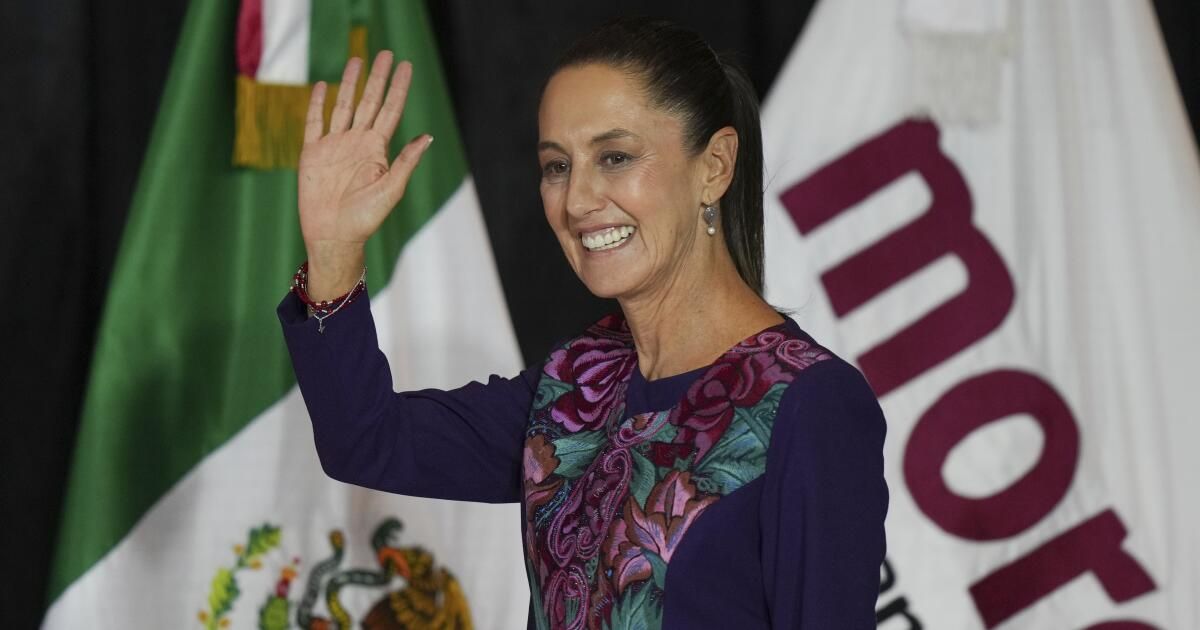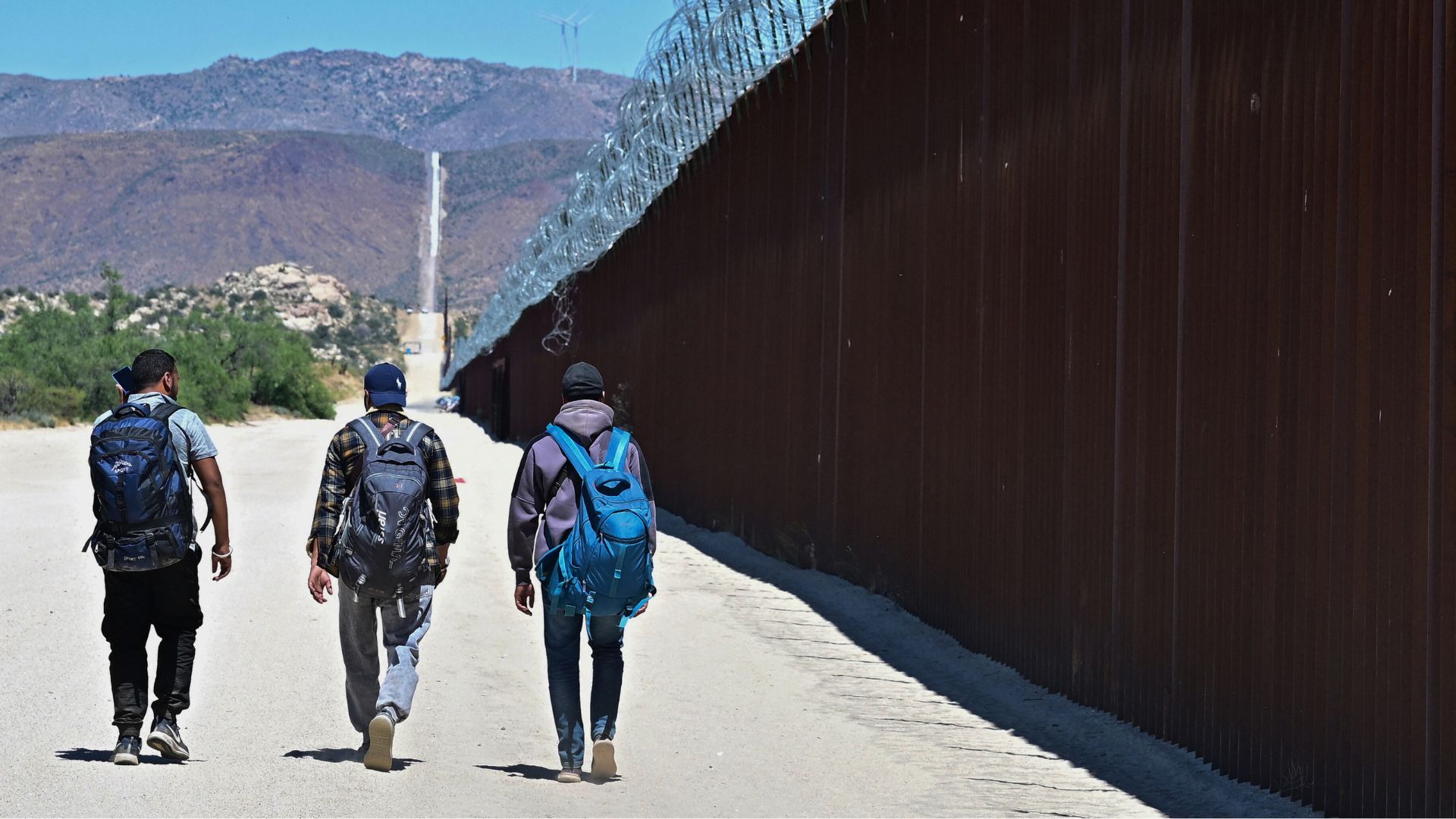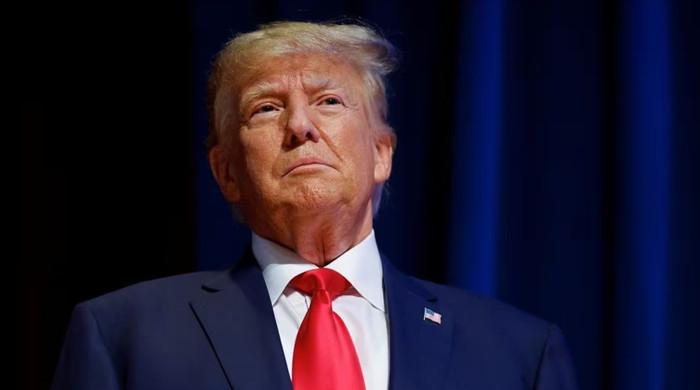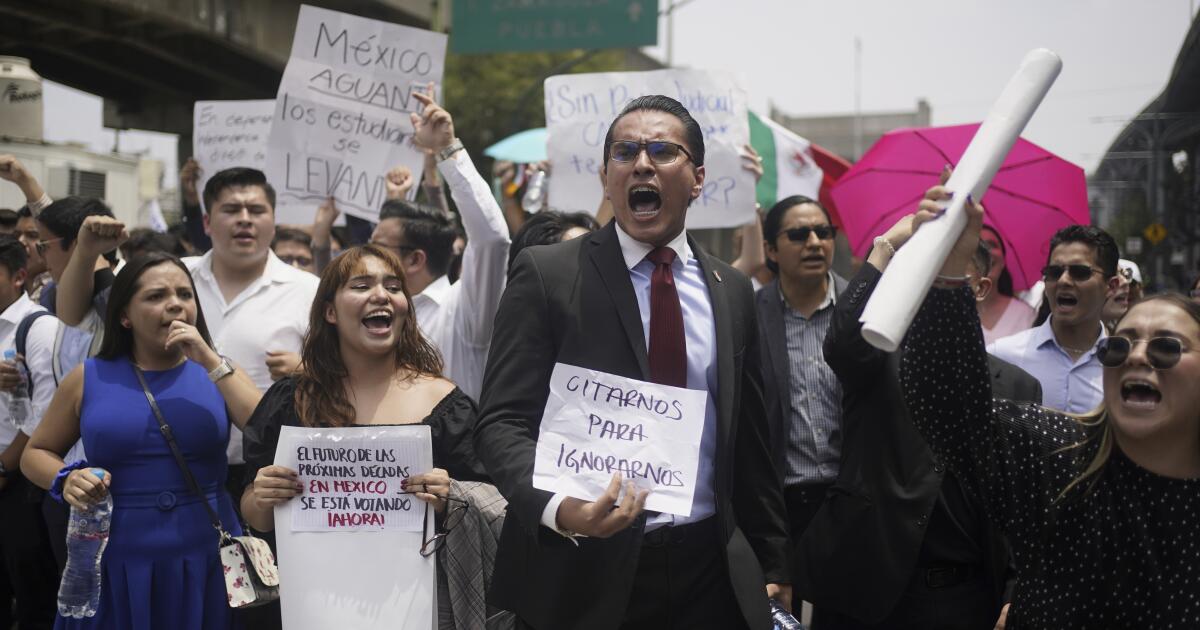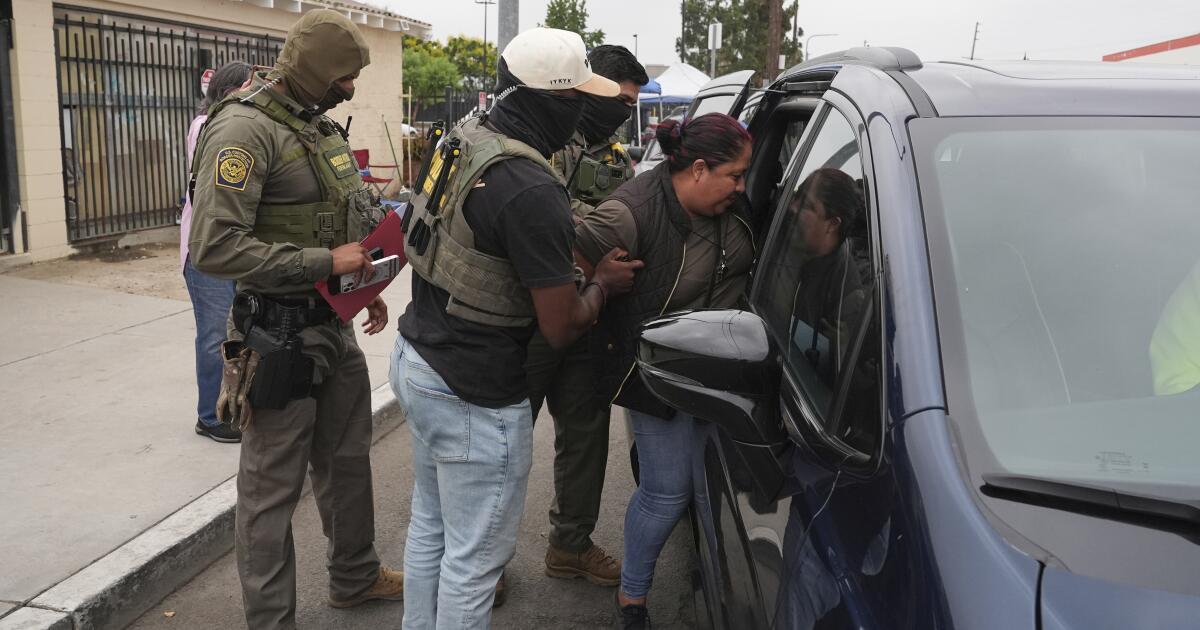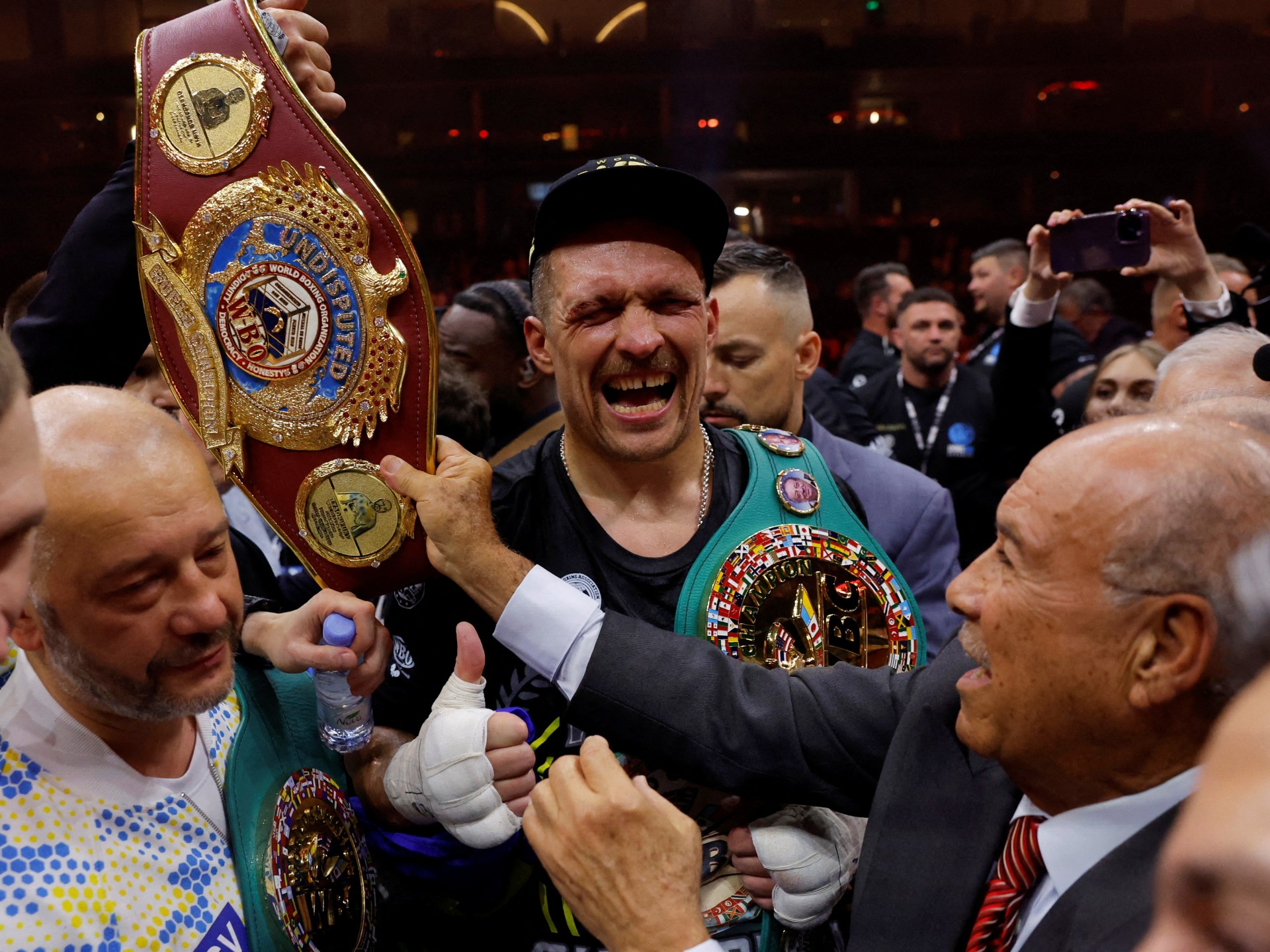Of the many terrible things that have been said about Mexico's supposed inferiority to its northern neighbor, the most damning was not even said by a gringo.
“Poor Mexico: So far from God, so close to the United States.”
Attributed to 19th century Mexican dictator Porfirio Díaz, the lament first emerged in the mainstream American press during the 1940s and has been rubbed in Mexicans' faces ever since. Although there is no evidence that Diaz actually said the apocryphal quote, I understand why it persists: It's a huge insult on multiple levels.
It portrays the country of my parents as always smaller than the United States. It makes Mexico look like a lawless and godless country. Putting those words in Díaz's mouth implies that the Mexican government is condemned to anarchy and caudillos.
Well, who's crying now?
On Sunday, Mexico elected Claudia Sheinbaum as president, and history was made in a way that makes American politics seem as old-fashioned as the Whigs.
Sheinbaum will become the first female president of a country that was long considered a sexist wasteland. Of Jewish descent, she is the first non-Christian to assume the presidency in a nation where Catholicism still dominates the country's psyche, if not its banks. She handily defeated another woman, Xóchitl Gálvez Ruiz, who made history even as she lost by becoming the first woman to finish second in a Mexican presidential election.
The United States, by the way, has only broken the last of those barriers.
Sheinbaum will be sworn in on October 1. By then, the eyes of the world will be focused on the United States, where a very different presidential campaign will come to an end. The main candidates are two old white men who have held the position before and are repeating the confrontation from four years ago. Joe Biden is running on his fourth Democratic presidential bid. Donald Trump is the presidential candidate of the Republican Party for the third consecutive election.
It's the kind of old-fashioned leadership that Americans have long associated with Third World countries, but no, we're in the United States in 2024.
Americans have sarcastically belittled Mexico's government for decades, while ours has been considered a role model for the rest of the world. But in 2024, which country can boast a better record of presidential milestones?
Mexico elected a black president, Vicente Guerrero, in 1829, when the U.S. Constitution still considered a slave to be three-fifths of a person and did not grant freedmen the right to vote. The first Mexican president of indigenous descent, Benito Juárez, took office in 1858, when the United States government was still carrying out an extermination campaign against Native Americans.
Josefina Vázquez Mota became the first presidential candidate from a major Mexican party four years before Hillary Clinton became the first in the United States. In 2018, current President Andrés Manuel López Obrador was the first winner who was not a member of Mexico's two main traditional parties. , PAN and PRI. In this country, candidates who are neither Democrats nor Republicans are treated like weirdos who threaten civilization, as are the people who vote for them.
Irma Selene Hernández Atondo waits to vote Sunday outside the Mexican Consulate in Los Angeles.
(Dania Maxwell / Los Angeles Times)
This weekend, U.S. consulates offered in-person voting for the first time for a Mexican presidential election, but they were unprepared for hours-long lines of people eager to participate. Turnout (60% so far) is behind the 66% of Americans who voted in the 2020 presidential election. But most Mexicans filled out their ballots with optimism, while we did so with fear.
Of course, Mexico's democracy is far from perfect. Antonio López de Santa Anna served a total of 11 terms as president, while Díaz ruled with an iron fist for 35 years. For most of the 20th century, presidential elections were the domain of a single party, the PRI. Today, violence against political candidates persists, particularly those running for local office. At least 37 candidates were murdered in the months leading up to Sunday's elections and hundreds more were threatened, to the point that López Obrador's government assigned them security guards.
Sheinbaum needs to prove she is more than just an acolyte of her mentor, López Obrador, whom critics portray as a leftist version of Trump for his cult of personality, imperious attitude toward haters and desire to stay in power. even if he is not officially in office. On social media, Gálvez complained that he faced “unequal competition against the entire state apparatus dedicated to favoring his candidate,” even though he admitted his defeat because “I am a democrat and I believe in institutions.”
But the fact is that Mexico's democracy worked on Sunday, at least at the presidential level. Mexicans treated the election as an opportunity to elect a new leader, not an apocalyptic referendum on the nation's future, the same way many Americans view the rematch between Biden and Trump. Despite his complaints, Gálvez is not crying over a stolen election, something that actually happened in Mexico, while Trump continues to insist that he was the legitimate winner in 2020.
Sheinbaum's opponents are not threatening an insurrection, as Trump supporters did on January 6 by storming the Capitol. And never in the history of Mexico has a convicted felon dared to run for president, much less with a chance of winning, as Trump is doing now.
Poor Mexico, by the way. So close to the United States, it is so far from a democracy that inspires hope.

